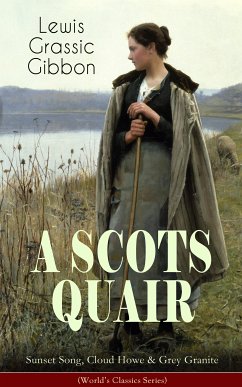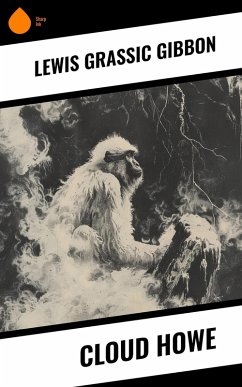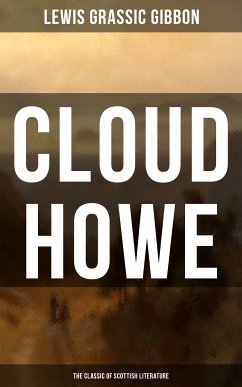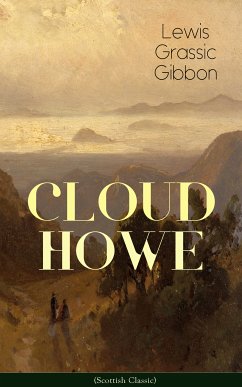
Cloud Howe (eBook, ePUB)

PAYBACK Punkte
0 °P sammeln!
In "Cloud Howe," Lewis Grassic Gibbon intricately weaves a tale set against the backdrop of early 20th-century Scotland, exploring the tension between tradition and modernity. The novel unfolds through lyrical prose, characterized by Gibbon's vivid imagery and his deft use of dialect, immersing readers in the Scottish landscape and the lives of its characters. This work is notable for its deep psychological insight and social commentary, reflective of the Modernist movement yet steeped in the Scottish literary tradition, as Gibbon captures the nuances of life in the fictional village of Kinrad...
In "Cloud Howe," Lewis Grassic Gibbon intricately weaves a tale set against the backdrop of early 20th-century Scotland, exploring the tension between tradition and modernity. The novel unfolds through lyrical prose, characterized by Gibbon's vivid imagery and his deft use of dialect, immersing readers in the Scottish landscape and the lives of its characters. This work is notable for its deep psychological insight and social commentary, reflective of the Modernist movement yet steeped in the Scottish literary tradition, as Gibbon captures the nuances of life in the fictional village of Kinraddie during a time of profound change. Lewis Grassic Gibbon, born James Leslie Mitchell, was profoundly influenced by his upbringing in rural Scotland and his experiences during World War I. His commitment to capturing the Scottish identity and the struggles of rural communities is evident in "Cloud Howe," which mirrors the conflicts he witnessed and the societal transformations of his own time. Gibbon's nuanced understanding of the Scottish landscape and culture provides an authenticity that enhances the novel's exploration of human resilience. I highly recommend "Cloud Howe" to readers who appreciate a rich narrative that interrogates the complexities of identity and belonging. Gibbon's masterful storytelling not only draws you into the lives of his characters but also invites reflection on the broader sociopolitical dynamics of early 20th-century Scotland, making it an essential read for anyone interested in Scottish literature and its historical context.
Dieser Download kann aus rechtlichen Gründen nur mit Rechnungsadresse in A, B, BG, CY, CZ, D, DK, EW, FIN, F, GR, H, IRL, I, LT, L, LR, M, NL, PL, P, R, S, SLO, SK ausgeliefert werden.













